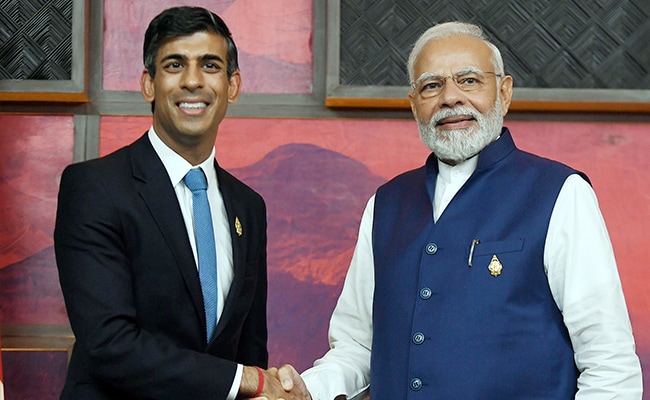Synopsis:
The Commerce Secretary has announced that negotiations for a trade agreement between India and the United Kingdom are in the final phase, with efforts underway to resolve remaining discrepancies. This development marks significant progress in bilateral trade discussions between the two countries. The trade agreement aims to enhance economic cooperation and promote trade and investment between India and the UK. Both sides have been working to address various issues and concerns to ensure a mutually beneficial agreement. Once finalized, the trade pact is expected to create new opportunities for businesses and facilitate smoother trade relations between India and the UK. ICCBizNews will continue to monitor developments in the negotiation process and provide updates on the outcomes of the trade agreement for stakeholders and the broader business community.
The Indian business sector is requesting increased opportunities for skilled professionals, particularly in areas like IT and healthcare, to enter the UK market, alongside seeking zero customs duties for various goods.
According to a senior government official on Friday, the talks regarding the anticipated free trade agreement between India and the UK have progressed significantly, with both parties actively addressing the outstanding points of contention.
Commerce Secretary Sunil Barthwal has confirmed that discussions are ongoing concerning the challenging matters.
"These negotiations have reached an advanced stage, with ongoing efforts to reconcile differences," he informed reporters at this location, emphasizing the need to await the conclusion of the ongoing 13th round of negotiations.
These statements hold particular importance considering the anticipated closure of talks by both parties this month, potentially culminating in the signing of the agreement in the final week.
While the majority of the 26 chapters have been settled, discussions at high levels continue for the outstanding issues, with an official UK delegation currently present for the negotiations.
A delegation led by Commerce Secretary Sunil Barthwal recently visited London to provide momentum to the ongoing discussions.
The UK team responsible for investment affairs is presently in India, expediting discussions with officials from the finance ministry for the proposed bilateral investment treaty (BIT).
Negotiations for the investment treaty are being conducted as an independent agreement between India and the UK. Such investment treaties play a vital role in fostering and safeguarding investments within each other's territories.
The primary issue under scrutiny in this agreement revolves around the dispute settlement mechanism.
These BITs serve to encourage and safeguard investments in each other's nations.
India has suggested initially utilizing all domestic legal procedures for dispute resolution before resorting to international arbitration.
Several consultations with domestic stakeholders in India have taken place to facilitate duty concessions within the automotive industry.
As per an industry expert, luxury segment needs are met by UK-based automakers like JLR, Bentley, Rolls-Royce, and Aston Martin, whereas the Indian market primarily consists of small and mid-sized passenger cars and two-wheelers in the mass segment.
The Indian industry is advocating for increased opportunities for skilled professionals in sectors such as IT and healthcare in the UK market, along with unrestricted market access for various goods exempt from customs duties.
Conversely, the UK is pushing for substantial reductions in import duties for products including scotch whiskey, automobiles, lamb meat, chocolates, and certain confectionary items.
Britain is also seeking expanded opportunities for UK services in Indian markets, particularly in segments such as telecommunications, legal services, and financial services encompassing banking and insurance.
Vinod Giri, the director-general of the Confederation of Indian Alcoholic Beverage Companies (CIABC), suggested that India could contemplate an immediate reduction of import duties to 100 percent from the current 150 percent for bottled Scottish Whiskey, followed by a gradual reduction to 50 percent over the course of 10 years.
Likewise, for bulk imports, duties could be immediately slashed to 100 percent, eventually decreasing to 50 percent over a 10-year period, considering that bulk imports are treated as intermediary goods in the domestic market.
The Indian alcoholic beverage market holds a value of USD 52 billion. According to the Scotch Whisky Association, India surpassed France to become the top purchaser of Scotch whisky by volume in 2022.
Bilateral trade between India and the UK saw a rise to USD 20.36 billion in 2022-23 from USD 17.5 billion in 2021-22.





.jpg)
